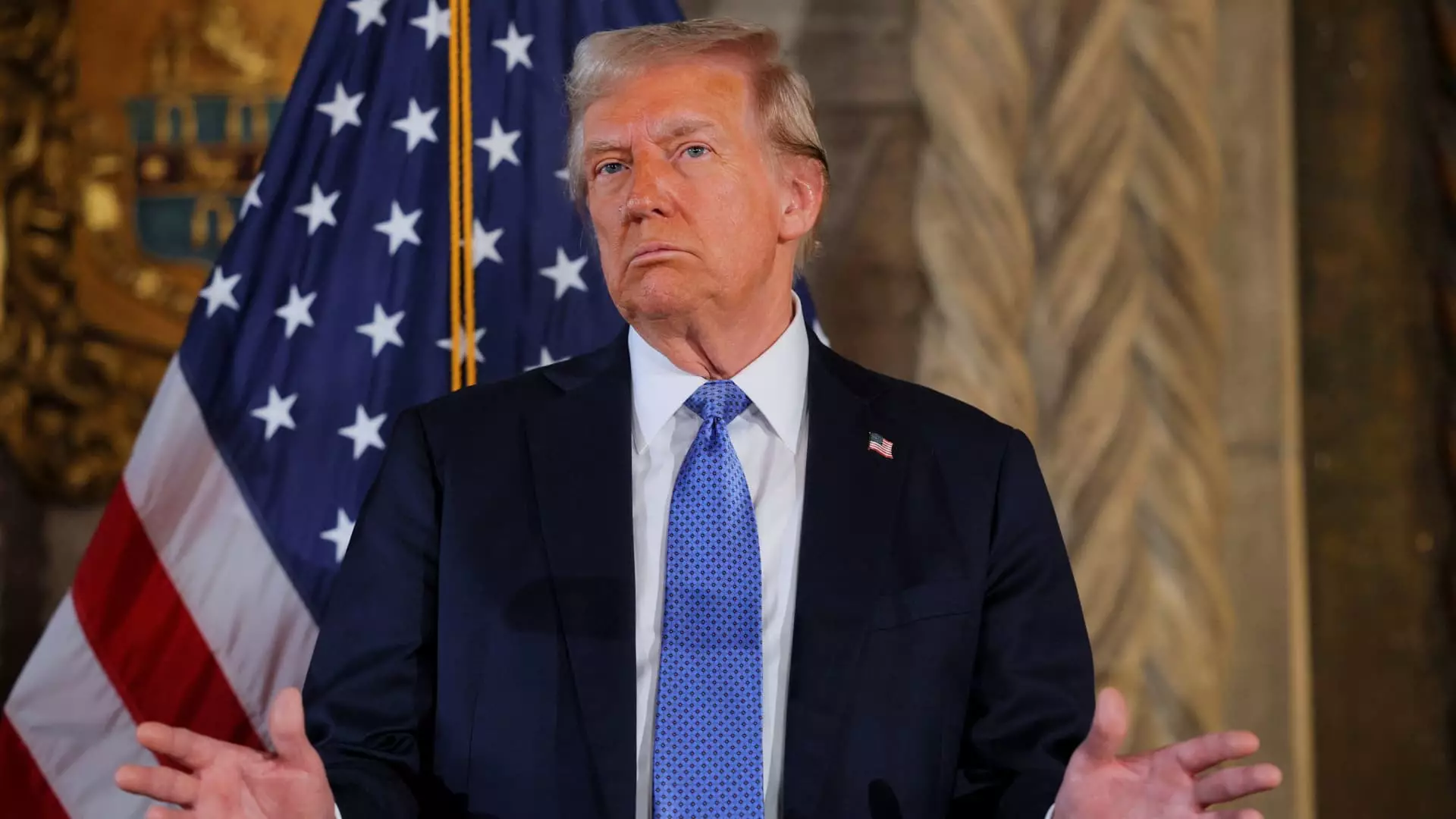The trade dynamics between the United States and the European Union (EU) have entered a contentious phase, particularly following remarks from President-elect Donald Trump regarding restructuring these economic ties through energy purchases. His ultimatum to the EU outlines a potential shift in trade policy, one that could significantly reshape the transatlantic relationship if realized. This article delves into Trump’s trade assertions, their implications for EU-U.S. relations, and the broader economic context underpinning these developments.
In a bold statement via his Truth Social platform, Trump conveyed his position to European officials, emphasizing that the EU’s hefty trade deficit with the U.S. necessitates a shift towards substantial purchases of American oil and gas. The U.S. trade deficit with the EU, which stood at an alarming $131.3 billion in 2022, has become a focal point of Trump’s trade rhetoric. His insistence on offsetting this gap with energy imports signals an aggressive and transactional approach to international trade, one that could have lasting repercussions if tariffs are implemented.
Trump’s strategy reflects a continuation of his “America First” agenda, which prioritizes domestic economic interests over multilateral cooperation. This perspective has alarmed many analysts who warn that imposing tariffs could ignite inflationary pressures within the United States. As Trump prepares to assume office, the resulting uncertainty surrounding potential tariffs poses significant risks not only for U.S.-EU trade relations but also for global market stability.
In light of Trump’s assertive stance, EU officials have demonstrated a pragmatism characteristic of international diplomacy. A senior diplomat acknowledged that, while Trump’s comments were not unexpected, they also recognized energy as a feasible avenue for expanding imports of U.S. goods. Furthermore, German Chancellor Olaf Scholz reportedly engaged in dialogue with Trump, signifying the EU’s commitment to collaborative problem-solving, even as they brace for potential conflict on economic fronts.
European Council President António Costa’s recent affirmations regarding transatlantic ties reflect a broader commitment among EU leaders to navigate the complexities of their relationship with the U.S. Despite the tensions, the EU appears resilient, seeking a pragmatic partnership that could mitigate the adverse effects of Trump’s proposals.
The emphasis on energy exports is not merely a tactical move; it stems from real shifts in the global energy landscape. As the U.S. has emerged as a key player in energy production, particularly following its growth in liquefied natural gas (LNG), European reliance on traditional suppliers like Russia has waned. The EU has conceptually aligned with Trump’s proposal not out of subservience but rather as a strategic maneuver to diversify its energy sources.
Ursula von der Leyen, President of the European Commission, recently underscored the intentions of the EU to replace Russian LNG imports with U.S.-sourced volumes. This evolution reflects a calculated shift in trade policy and energy strategy, yet it raises questions about the economic viability of such arrangements. The implications of Trump’s energy-centric trade suggestion must be critically explored, particularly regarding cost efficiency and long-term sustainability.
In light of the aggressive trade posture, the specter of retaliation looms large. Enrico Letta, the former Prime Minister of Italy, cautioned that the EU must be prepared to respond appropriately to Trump’s transactional tactics. This raises the specter of a trade war, whereby the intertwining of energy policy and tariffs could destabilize both economies. The challenge lies in disentangling these issues, as Trump’s approach suggests a willingness to conflate disparate economic matters into one overarching negotiation.
Retaliation, however, should not merely mimic Trump’s own tactics; rather, it warrants a calculated response aimed at maintaining a balance in trade dynamics. The EU has historically underscored its commitment to multilateralism and fair trade, and aligning retaliatory measures with these principles could provide a strategic counterweight to U.S. policies.
As the United States and European Union stand on the precipice of heightened economic tensions, the ramifications of Trump’s energy tariff tactics will likely resonate well beyond the immediate financial landscape. These developments underscore the fragility of international trade relationships and the challenges both regions face in fostering cooperative ties in the presence of stark rhetorical and economic divides. Adapting to Trump’s approach while ensuring economic sovereignty will be paramount for the EU as they navigate the impending complexities of transatlantic trade relations in the coming years.


Leave a Reply